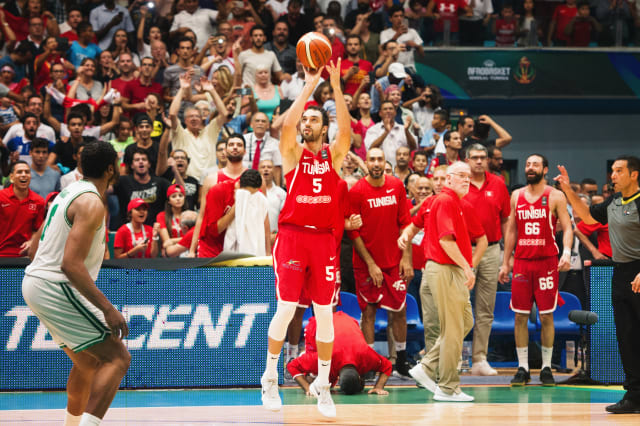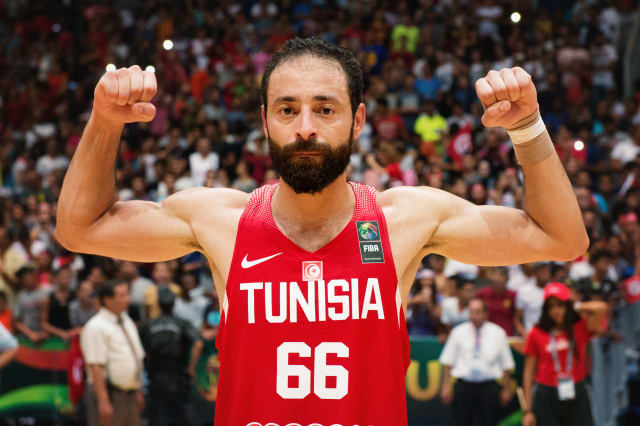How Tunisia won FIBA AfroBasket 2017
SHEFFIELD (Julio Chitunda's African Message) - It's taken Tunisia three attempts to win the FIBA AfroBasket in front of home fans.
SHEFFIELD (Julio Chitunda's African Message) - It's taken Tunisia three attempts to win the FIBA AfroBasket in front of home fans.
They tried to win the African Championship in 1987 and 2015 in Tunis, but the Central African Republic and Nigeria took the trophies home.
Two years ago, for instance, they had everything set to win FIBA Africa's most important competition at home, but somehow, things didn't work out.
While Mejri, Roll and Tlatli were nowhere to be seen at FIBA AfroBasket 2017, Tunisia relied on home-grown talents to become the new kings of African basketball.
That's it. Tunisia wins AfroBasket 2017. 77-65 pic.twitter.com/E6C5CtElh9
— Nigeria Basketball (@NigeriaBasket) September 16, 2017
That was exactly the answer because Tunisia played as a team throughout the competition, averaging a tournament-high 17.5 assists per game.
They relied on a collective effort and - more importantly - Mario Palma's side knew by no stretch of the imagination that they could let down their home supporters for the third straight time, in spite of their 2011 continental title in Madagascar.
So, three Group Phase wins in as many games was the starting-point for what would become a deserving reward in front of a sellout 12,500 crowd at Salle Omnisports de Rades, on the outskirts of Tunis, on Saturday, September 16.
Meanwhile, winning the Final against Nigeria - who tried to defend their continental title - seemed to be a mission impossible for Tunisia, especially because of the Western Africans' high athleticism and motivation.
After all, Nigeria had proved doubters wrong for lining-up a team that had only two weeks of preparation, had a new coach and made it to Tunis with only one player [Ike Diogu], who was part of the 2015 winning team.
Tunisia trailed by as many ten points in the opening twenty minutes, causing a nerve-wracking to local fans.
Nevertheless, a combination of a three-pointers from substitutes Nizar Knioua and Ziyed Chennoufi turned the game around for the hosts, giving Tunisia a 25-24 lead at halftime, and they never trailed again, leading by as many 16 points.

Ziyed Chennoufi converted 7 of his 9 field-goal attempts, finishing with a team-high 19 points in the Final
Tunisia's successful FIBA AfroBasket 2017 campaign in Rades was a proof of how preparation, planning and continuity pays-off.
With two months of intense preparation, which saw the new African champions holding training camps in Europe where they faced Romania, Portugal, Spain, Belgium and France, sooner or later the North Africans would get a reward.

Unsung hero Nizar Knioua buried 4 of his 5 three-pointers, helping Tunisia beat Nigeria in the title game
Were Tunisia the better team in the tournament?
Now, the answer is obvious as Tunisia finished as the only undefeated team in the tournament. But prior to Semi-Finals, I thought Senegal had a shot at wining the African title for the first time in twenty years.
Well done, Tunisia.
Julio Chitunda
FIBA
FIBA's columnists write on a wide range of topics relating to basketball that are of interest to them. The opinions they express are their own and in no way reflect those of FIBA.
FIBA takes no responsibility and gives no guarantees, warranties or representations, implied or otherwise, for the content or accuracy of the content and opinion expressed in the above article.